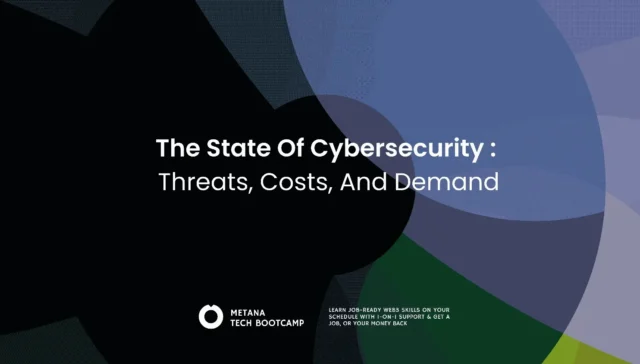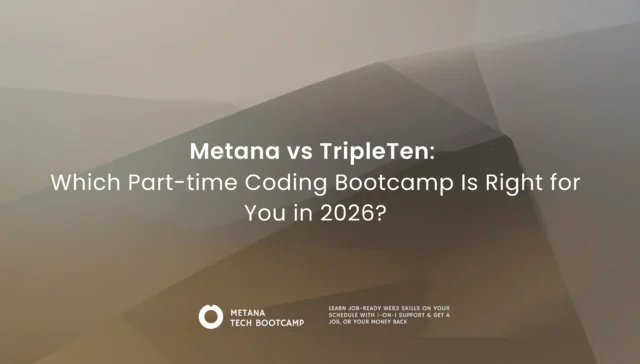TL;DR
- The Metaverse is a shared network of 3D virtual worlds where people can work, play, socialize, and own digital assets.
- It is built using technologies like VR, AR, blockchain, and AI.
- Major companies are investing heavily to make it the next version of the internet.
- The Metaverse opens up new career paths, social experiences, and economic opportunities.
- Understanding the Metaverse early gives you a major head start as it becomes a bigger part of everyday life.
What is the Metaverse?
At its core, the Metaverse is a virtual, persistent world that exists parallel to our physical one. It’s made up of interconnected digital spaces where people can interact, work, play, shop, create, and even own assets through technologies like NFTs and blockchain. In simple terms, what is Metaverse explained is about experiencing a digital world that’s immersive and dynamic, where the boundaries between the physical and virtual worlds blur.
Unlike the traditional internet, where you view content on screens, in the Metaverse, you experience content from the inside, often through VR headsets, AR glasses, or even traditional devices like your phone or computer.
Rise of the Metaverse
The term “Metaverse” was first introduced by author Neal Stephenson in his 1992 science fiction novel “Snow Crash.” In the book, the Metaverse was imagined as a massive, shared digital space where people, through avatars, could escape reality and interact in a 3D virtual world.
In the early 2000s, platforms like Second Life, a multiplayer virtual world where people could create avatars, interact with other users, and engage with user-generated content in a shared online environment, gave people their first real taste of digital living. It allowed users to create avatars, own virtual property, and participate in a thriving online economy.
Throughout the 2010s, advances in VR and AR technologies, along with the growth of massive online multiplayer games like Minecraft, Fortnite, and Roblox, expanded the idea of shared virtual worlds even further.
The real explosion of mainstream interest came in 2021, when Facebook rebranded itself as Meta, signaling a full strategic pivot toward building the Metaverse. This move, combined with rising interest in Web3, NFTs, and virtual real estate, pushed the Metaverse into everyday discussions across tech, business, and popular culture.
Features of the Metaverse
Here are some key features that define the Metaverse:
- Immersive 3D Spaces
The Metaverse offers fully 3D environments where users feel like they are inside the experience rather than just observing it.
- Persistence
Virtual worlds continue to exist and evolve even when you log off. Just like the real world, things happen with or without you.
- Digital Avatars
Users create avatars, customizable digital identities, to represent themselves and interact with others.
- Interoperability
The long-term vision of the Metaverse is that you can move between different virtual worlds while keeping your avatar, assets, and identity intact.
- Ownership and Digital Economy
Thanks to blockchain, users can truly own virtual items, land, art, and even businesses. You can buy, sell, and trade goods using cryptocurrencies and NFTs.
- Real-time Social Interaction
Unlike passive social media scrolling, the Metaverse enables live, dynamic interactions, attending a concert, joining a team meeting, or exploring a museum together.
- Blending of Physical and Digital Worlds
Augmented reality (AR) brings the Metaverse into your physical space, overlaying digital objects into the real world.
- User-Generated Content
Just like YouTube allowed anyone to become a creator, the Metaverse empowers users to create, build, and monetize their own virtual experiences.
Why Should You Care about Metaverse?
New Ways to Connect and Socialize
The Metaverse offers immersive social experiences. Instead of scrolling through Instagram or texting friends, you can attend a party or explore a fantasy world together all digitally.
Career and Business Opportunities
New jobs are emerging: Metaverse architects, VR event planners, digital fashion designers, and blockchain developers are just the beginning. Companies will need employees who can design, manage, and grow these virtual spaces.
The Future of Work
Virtual offices and digital co-working spaces could become the new normal. Instead of endless Zoom calls, you could collaborate in 3D spaces where presence and interaction feel more natural.
Digital Ownership and Economies
The Metaverse allows you to buy, sell, and trade digital goods, from clothes for your avatar to virtual homes. Thanks to blockchain technology, you can truly own digital items and even make real-world income from them.
Entertainment and Learning Revolution
Imagine attending a live concert by your favorite artist from your bedroom or learning history by walking through ancient Rome recreated in VR. The Metaverse makes experiences more immersive and memorable.
It’s Already Here (and Growing Fast)
Companies like Meta (formerly Facebook), Microsoft, Apple, Google, and countless startups are investing billions to build and shape the Metaverse. It’s not a matter of if it will happen, it’s already happening.
Conclusion
The Metaverse isn’t just another tech buzzword, it’s the next evolution of the internet. It has the potential to reshape industries, redefine how we connect with one another, and create new economies and experiences. Whether you want to be an early adopter, build a career in it, or just stay ahead of the curve, understanding the Metaverse now will position you for success in the digital future.
FAQs
Is the Metaverse the same as Virtual Reality (VR)?
Not exactly. VR is a technology that helps you experience the Metaverse, but the Metaverse itself is bigger. It includes VR, AR, blockchain, digital economies, and virtual worlds.
Do I need a VR headset to access the Metaverse?
No! While VR offers the most immersive experience, you can access many Metaverse experiences using a regular smartphone, tablet, or computer.
Can you make real money in the Metaverse?
Yes. People are already making money by selling NFTs, trading virtual real estate, offering digital services, and even working jobs inside the Metaverse.
Is the Metaverse safe?
Like any emerging technology, it has risks, including privacy concerns, scams, and digital addiction. As it evolves, better security and ethical standards will be necessary.
How can I get started with the Metaverse?
Start by exploring platforms like Roblox, Decentraland, Sandbox, or VRChat.







